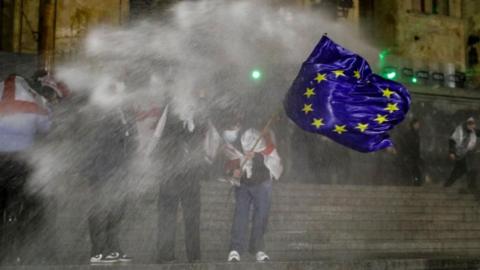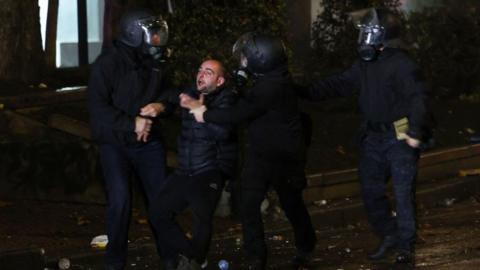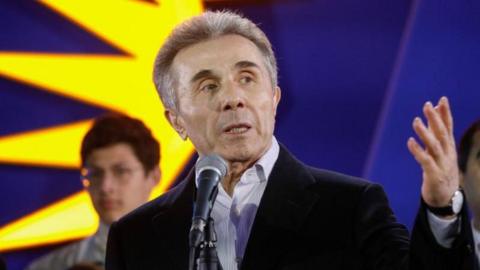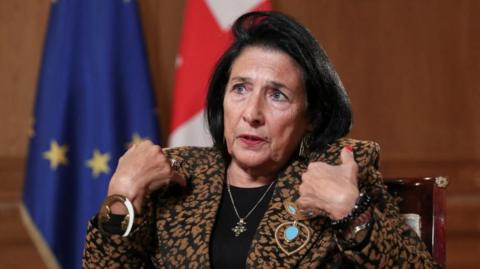The nightly protests show no sign yet of abating, despite temperatures falling close to freezing, and there is no indication yet of a resolution.
Georgia has seen protests before, but not like this, says Lasha Dzebisashvili. Public servants from all walks of life have signed letters and petitions, and several ambassadors have resigned, including Georgia’s ambassador to the US, a clear blow for the ruling party.
The long stretch of Rustaveli Avenue is where this story will play out in front of parliament in Tbilisi, but the protests are being felt in other towns and cities too, including Batumi and Poti on the Black Sea, Zugdidi in the north-west and Kutaisi.
On Sunday night, a large crowd of protesters formed outside the public broadcaster, demanding that the president be given airtime rather than the usual pro-government fare.
It didn’t happen and gradually the protesters marched towards the centre of the capital, halting the traffic and chanting “Georgia, Georgia”.
Nika Gvaramia and his fellow opposition leaders believe the clear way out is for free and fair elections, not under the existing election commission but under the auspices of the EU and US: “If Georgian Dream is sure they won the elections, let’s go with new ones.”
That seems highly unlikely as it would require an implicit admission that the original vote was unfair.
GD supporter and university lecturer Levan Gigineishvili believes they just need to hold out for a new president in the US: “I think a great way out of this will be [Donald] Trump coming to power and then everything will change.”
But 20 January is a long way ahead and this small state in the Caucasus will not be top of his agenda. And Georgia’s business sector for one will not be happy with a continuing stalemate or with the government doing lasting damage to ties with the West.



